Key Information
Course Format: Distance learning, assessment only - encouraging independent, adult-centred, self-directed learning
Enrolment: Anytime
Assessment: 5 case reports and 1 reflective essay
Timetable: Quarterly assessment
Enrol Now
Course Information
Please note:
You can only purchase this course online if you are an existing CertAVP candidate. During the checkout process you will be required to enter your RVC username.
How to enrol as a new CertAVP candidate.
Candidates should have a sound grounding in the areas listed below. They also need to develop the skills needed to write case reports that demonstrate the following competencies:
General objectives
- To acquire and develop written communication skills required to present case reports.
- To demonstrate an ability to communicate competence in decision making and clinical reasoning.
- To demonstrate reflective skills that enable understanding of the issues raised in clinical practice and the candidate’s learning as a result of completing the module.
Learning Outcomes
- Deal competently with a range of commonly presented conditions or situations from equine practice. In the presentation of these cases the following learning objectives should be achieved.
- Demonstrate a sound and logical approach to clinical cases and an understanding of the pathophysiological principles of the disorders diagnosed and treated.
- Clearly articulate the clinical reasoning and the decision making process in assessing clinical cases including discussion of diagnostic procedures and assessment of relevant laboratory data. This should include demonstration of a problem-orientated approach to clinical cases and development of appropriately prioritised differential diagnosis lists.
- Demonstrate an appreciation of the principles of clinical pharmacology related to drugs used in equine practice.
- Demonstrate understanding of principles of surgical practice as they relate to pre-operative evaluation of the patient, aseptic technique, peri-operative analgesia, justification for surgical procedure chosen, client education, postoperative care.
- Describe use of diagnostic imaging in their practice premises and (where applicable) in the field including quality control procedures in place that allow for the safe production of a diagnostic image (** New learning objective added - applicable for enrolments after 1st September 2013 **)
Demonstrate understanding of the principles of anaesthetic management including pre-anaesthetic assessment, drug pharmacology, choice of anaesthetic equipment, monitoring and supportive measures, and recovery/post op care
Please download the Module Outline, found in the Key Information box
Bettina Dunkel, DVM PhD DipACVIM DipACVECC DipECEIM FHEA MRCVS
Professor in Equine Internal Medicine and ECC
The Royal Veterinary College
Nicola Menzies-Gow, MA VetMB PhD DipECEIM CertEM(Int.med) FHEA MRCVS
Professor in Equine Medicine, Member of the RVC Animal Welfare Ethical Review Board and the RCVS Ethical Review Panel
The Royal Veterinary College

